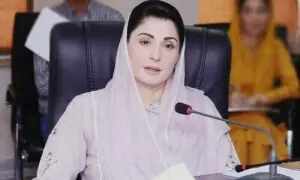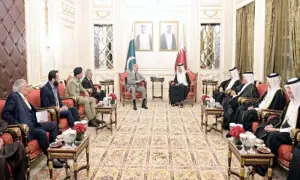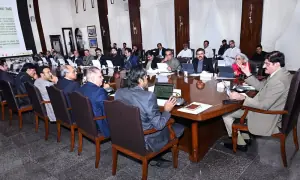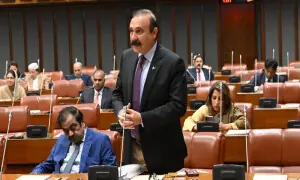Kohistan fatwa bars women from election canvassing but their is a twist
3 min readA group of Islamic clerics in KP’s Kohistan region has issued a fatwa, or religious edict, banning women from participating in election canvassing.
However, a local politician said the fatwa was not sparked by hatred towards women. Instead, it was aimed at preventing the misuse of the powerful role women could play in Kohistan society.
The edict, which terms women’s participation in canvassing as unIslamic, comes only two weeks before the February 8 general election in Pakistan.
It is significant because for the first time in the history of the region, three women candidates are contesting election to the provincial assembly of Khyber Pakhtunkhwa province.
A local source told Aaj News that around 400 ulemas gathered in the Komila area of Kohistan and the gathering concluded with the release of a six-point ‘declaration’ or fatwa. Another source later put the number of participants at only 30 to 40.
Aaj News has obtained a copy of the declaration.
The declaration said taking women to the homes of voters for canvassing is against the Sharia.
It also said voting for a candidate who held views against the Islamic system of government amounted to supporting a lie, which was a grave sin.
The fatwa says forcing voters to pledge their support on oath on the Holy Quran was also against Sharia.
The fatwa declared that voting in return for monetary gains was the worst form of bribery and that casting a vote on the basis of national, regional, or ethnic divide was against the Holy Quran and Hadith.
The decree also said that the act of differentiating between the vote for national and provincial assemblies was against the ideology of ulema.
The declaration has the signatures of at least 18 ulemas with their names.
Kohistan is a conservative mountainous region in the north of Pakistan.
Religious parties have dominated the local politics in the district for decades. A more liberal Pakistan Peoples Party has not won a single national election here since 1993.
However, in a first for the region, three female candidates are contesting election to the provincial assembly.
Supported by PTI, Tehmina Fahim is running for the PK-31 Upper Kohistan constituency.
Momina Basit, another PTI-backed candidate, is running for PK-33 Kolai Palas seat where Sanaya Sabeel, an independent candidate, is the only other female candidate.
Powerful role of women
The fatwa appears to promote already widespread patriarchy in the country. But a local politician says it was only aimed at preventing the misuse of a significant role women have played in this tribal region.
A centuries-old tradition in the region dictates that if women from a family arrive at the house of their enemies to seek pardon for murder or seek any other favour, the host family will yield to their request, said Bakht Buland, who is a former Union Council chief of Komila.
Usually, women carry a copy of the Holy Quran as well, he said.
The tradition has helped resolve feuds among groups and tribes because the household visited by women carrying a copy of the Holy Quran has no option but to give in to their demands.
Buland believes the ulemas included a point about the tradition in their declaration because they feared the tradition could be misused.
When asked if the fatwa would hurt the election campaign of women candidates, Buland said the ulema who issued the edict came from a particular group and everyone knew “their reality.”
For the latest news, follow us on Twitter @Aaj_Urdu. We are also on Facebook, Instagram and YouTube.
























Comments are closed on this story.